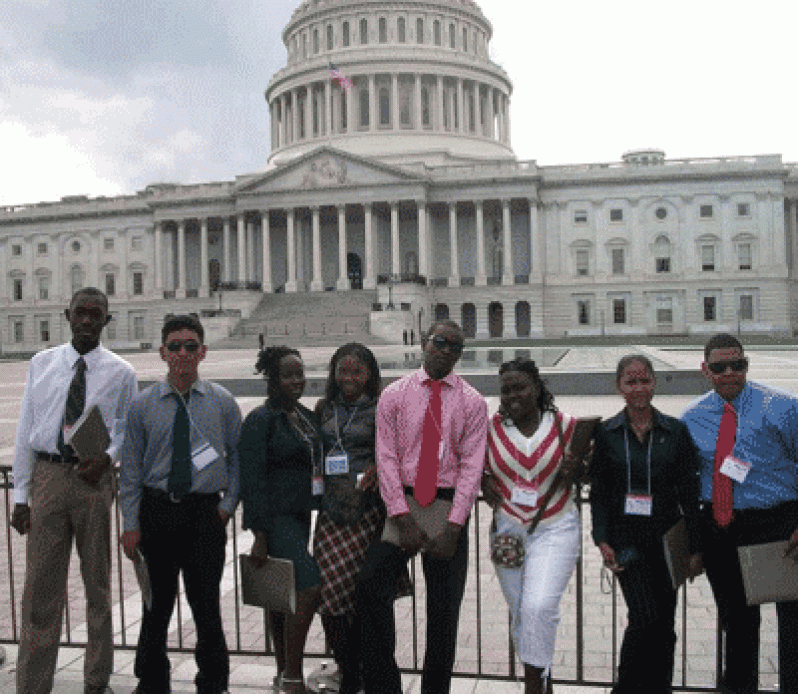THE U.S. Embassy has announced the beginning of a Youth Ambassadors Programme (YAP) with the Caribbean.
 The event is a three-week cultural and leadership exchange programme for secondary school student leaders to visit the United States.
The event is a three-week cultural and leadership exchange programme for secondary school student leaders to visit the United States.
It underscores Foreign Secretary, Hillary Clinton’s priorities of engaging international youth in meaningful dialogue, fostering relationships among youth from all backgrounds, and creating networks of youth leaders.
The programme for 2013-2014 will include three separate, three-week, U.S.-based exchanges on leadership and citizen action for approximately 90 secondary school students and adult educators from six countries in the Caribbean region.
Guyana, will select 12 youths and three adults in three separate delegations to participate:: February 3-26, 2013; October 6-29, 2013; and February 2-25, 2014.
Youth ambassadors and mentors from the region will travel in groups of mixed nationalities to the United States for exchanges in Denver, Colorado and Washington, D.C. The focus will be on civic education, community service, and youth leadership development, along with the sub-theme of social entrepreneurship.
Adult participants will have special sessions with their peers designed to help foster leadership and civic education programmes at home. Participants will stay in retreat and conference locations, and with host families.
Afterwards, alumni will develop projects that serve the needs of their communities in the months that follow their return home. “We encourage all interested students and mentors to visit the U.S. Embassy website at http://georgetown.usembassy.gov/ page for more information and applications,” a release from the US Embassy said.
Eleven students and two mentors participated in the first round for Guyana of the Youth Ambassadors Programme in September 2012. They visited Washington, D.C. and Laramie, Wyoming and met with Guyana’s Ambassador to the United States, Bayney Karran, as well as the Governor of Wyoming.
During their programme, the youth ambassadors and mentors engaged in a variety of activities, including dialogue sessions, interactive site visits, experiential workshops, leadership training, team-building exercises, outdoor adventures, community service projects, and cultural excursions. They also attended a U.S. high school for a few days and experienced living with a U.S. family.



.jpg)








